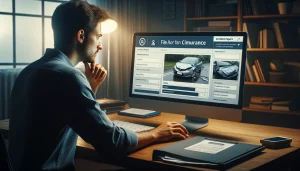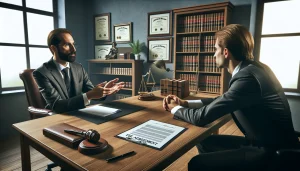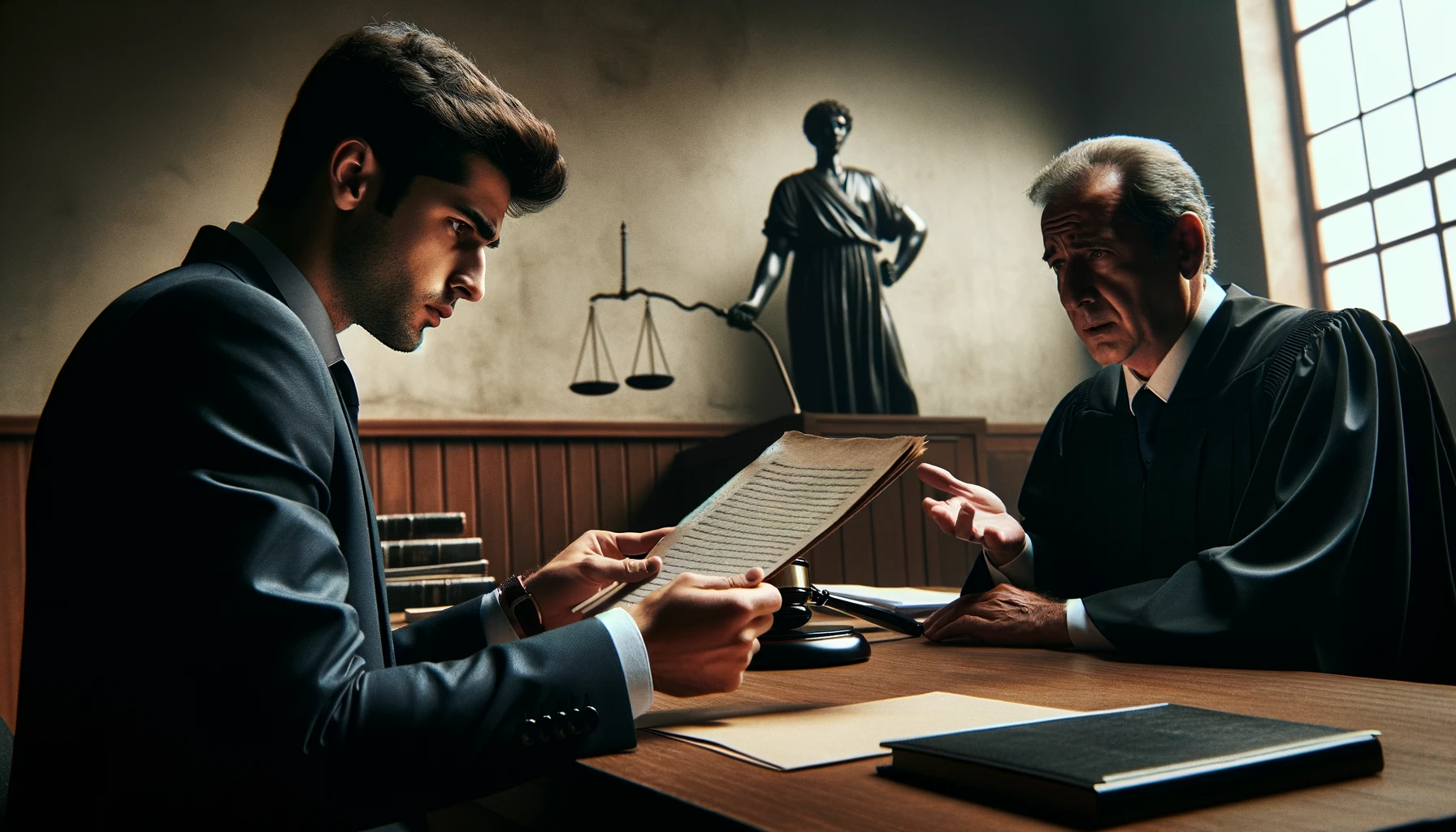Legal Resources: What You Need to Know if You've Had a Car Accident
Introduction
Understanding your legal rights and resources after a
car accident is crucial. This knowledge can help you navigate the complexities of insurance claims, legal procedures, and potential court appearances effectively. This article provides a comprehensive guide to the essential legal knowledge you need post-accident.
Understanding Your Rights
After a
car accident, knowing your immediate legal rights and responsibilities can significantly influence the outcome of your situation.
Immediate steps after an accident
Safety first: ensure all parties are safe, and call emergency services. Report the accident to the police as it's crucial for legal documentation.
Documentation: What to collect at the scene?
Gather names, contact information, insurance details of all involved parties, and witness statements. Take photos of the accident scene, vehicle damages, and any visible injuries.
Legal Assistance: When to Hire an Attorney
Not every car accident necessitates legal representation, but knowing when it can be beneficial is crucial.
It's important to differentiate between various accident scenarios. For minor damages where no parties are injured, legal help might not be necessary. However, in cases involving significant injuries or substantial financial losses, consulting an attorney can be critical to protect your interests and navigate the complexities of legal proceedings.

Benefits of Having Legal Representation
Having an attorney can significantly enhance your position in several ways. They can negotiate with insurance companies, represent you in court if necessary, and work to ensure that you receive fair compensation for damages and injuries sustained. This is particularly important in complex cases where fault is contested or insurance offers are insufficient.
Insurance Claims Process
Navigating insurance claims typically begins immediately following an accident, after ensuring everyone's safety and collecting initial information.
Filing an Insurance Claim
When filing a claim, it's important to gather all necessary information including photos of the damage, police reports, and witness statements. Be aware of common pitfalls such as admitting fault or not fully documenting injuries, as these can affect the outcome of your claim.
Negotiating with Insurance Companies
Dealing with insurance adjusters requires a strategic approach. Tips include not accepting the first settlement offer, being prepared with evidence to support your claim, and understanding your policy details thoroughly. If your claim is denied, it's important to know how to appeal the decision or when to escalate the issue with legal help.
Common Legal Issues Post-Accident
Understanding common legal challenges post-accident can prepare you for potential obstacles.
Disputes Over Fault
Fault determination is a critical aspect of
car accident claims. If you disagree with an assessment, having legal representation can help challenge the findings and present evidence that supports your perspective.
Dealing with Non-Cooperative Parties
If the other involved party or their insurance company is uncooperative, strategies such as formal complaints to state insurance boards or legal action may be necessary. An attorney can guide you through these processes to ensure your rights are protected.
Compensation You Can Seek
Understanding the types of compensation available can help you assess the value of your claim.
Types of Damages
Damages in
car accident cases might include compensatory damages for medical expenses, lost wages, and property damage, as well as punitive damages in cases of egregious negligence. Knowing what damages are applicable in your situation can be crucial in evaluating the adequacy of any proposed settlement.
How Compensation is Calculated
Compensation for
car accidents is calculated based on several factors, including medical expenses, lost wages, and the extent of physical and emotional injuries. Other considerations might include the impact on the victim's quality of life and future earning capacity.
Statute of Limitations
It is crucial to understand that each state has its own laws governing the time frame within which you must file a claim or lawsuit after an accident. Missing these deadlines can forfeit your right to seek compensation.
What if You Are at Fault?
Partial Fault and Compensation
In many states, the concept of comparative negligence applies, meaning that if you are found partially at fault, your compensation may be reduced by your percentage of fault in the accident.
Legal Obligations
If you are found at fault, certain legal obligations must be fulfilled, such as promptly reporting the accident to your insurance company and cooperating with their investigation.
Court Procedures
What to Expect in Traffic Court
Understanding traffic court procedures can help prepare you for what to expect. This includes everything from the filing of motions to how testimonies are handled.
Preparing for Your Day in Court
Preparation is key to a successful court appearance. This involves gathering all necessary documentation, possibly securing legal representation, and understanding the basics of courtroom etiquette.

Alternatives to Court
Mediation and Arbitration
Exploring alternatives like mediation or arbitration can be advantageous, offering a less formal setting and potentially quicker resolutions than traditional court proceedings.
Benefits of Settling Out of Court
Settling out of court can save time and money and may result in a more favorable outcome for all parties involved due to the more collaborative nature of settlements.
Special Considerations
Accidents Involving Commercial Vehicles
Legal complexities can increase when accidents involve commercial vehicles due to additional regulatory standards and potential corporate involvement.
Accidents Involving Pedestrians
Accidents involving pedestrians can carry specific legal nuances concerning liability and the duty of care owed by drivers and pedestrians alike.
Safety and Prevention Tips
Legal Measures to Prevent Accidents
Various laws and regulations, such as speed limits and DUI laws, are designed to reduce
car accidents and enhance road safety.
Importance of Regular Vehicle Maintenance
Regular vehicle maintenance is not just a good practice—it can also be a legal requirement to prevent accidents and subsequent liability.
Resources and Help
Legal Aid Organizations
There are numerous organizations that offer free or low-cost legal services to those involved in car accidents who require legal assistance.
Online Resources and Tools
Various websites and tools provide valuable information and resources on
car accident cases, helping individuals navigate the complexities of post-accident procedures.
Conclusion
Being informed about your legal options and resources following a
car accident is indispensable. This guide aims to arm you with the knowledge needed to handle the aftermath of an accident efficiently and effectively.
Look for an attorney who has the right legal resources for your legal needs.
Contact us here on the
Warmuth Law website or through our hotline 888-517-9888.
Frequently Asked Questions (FAQ's)
1. What should I do immediately after a car accident?
-
- Ensure Safety: First, ensure everyone involved is safe. Move to a secure location if possible.
- Call 911: Report the accident to the police, even if it's minor, as a legal record may be needed later.
- Exchange Information: Swap contact and insurance details with the other driver(s).
- Document the Scene: Take photos of the vehicles, any damage, the surrounding area, and any injuries.
- Seek Medical Attention: Even if you feel fine, some injuries may not be immediately apparent.
- Notify Your Insurance: Contact your insurance company to report the accident and start the claims process.
2. How do I know if I need a lawyer?
-
- You might consider hiring a lawyer if:
- There are injuries, especially serious or permanent ones.
- There is significant vehicle damage or dispute over who is at fault.
- The insurance company disputes your claim or offers a settlement that doesn’t cover your losses.
- There are complications, such as the involvement of pedestrians, multiple vehicles, or commercial entities (like trucks or taxis).
3. Can I file a claim if I’m at fault?
-
- Yes, you can still file an insurance claim even if you are at fault, depending on your insurance policy. This is typically through your collision coverage for vehicle repairs and your medical coverage for any injuries. However, recovery from the other party's insurer may be limited or non-existent if you are deemed to be at fault.
4. What are the risks of going to court?
-
- Costs: Legal fees can be substantial, especially if the case drags on.
- Time: The process can be lengthy, taking months or even years to resolve.
- Uncertainty: Outcomes in court can be unpredictable, and there’s no guarantee of winning.
- Stress: The stress of litigation can affect your personal and professional life.
- Public exposure: Details of the accident and your personal life may become public record.
5. How can I find reliable legal resources?
-
- State Bar Association: Contact your state’s bar association for referrals to qualified attorneys.
- Legal Aid Societies: If cost is an issue, look for legal aid societies that offer services based on income.
- Online Reviews and Ratings: Websites like Avvo, Martindale-Hubbell, and others can provide attorney reviews and ratings.
- Referrals: Ask friends, family, or colleagues if they recommend anyone.
- Consultations: Many attorneys offer free initial consultations to discuss your case and their fees.













